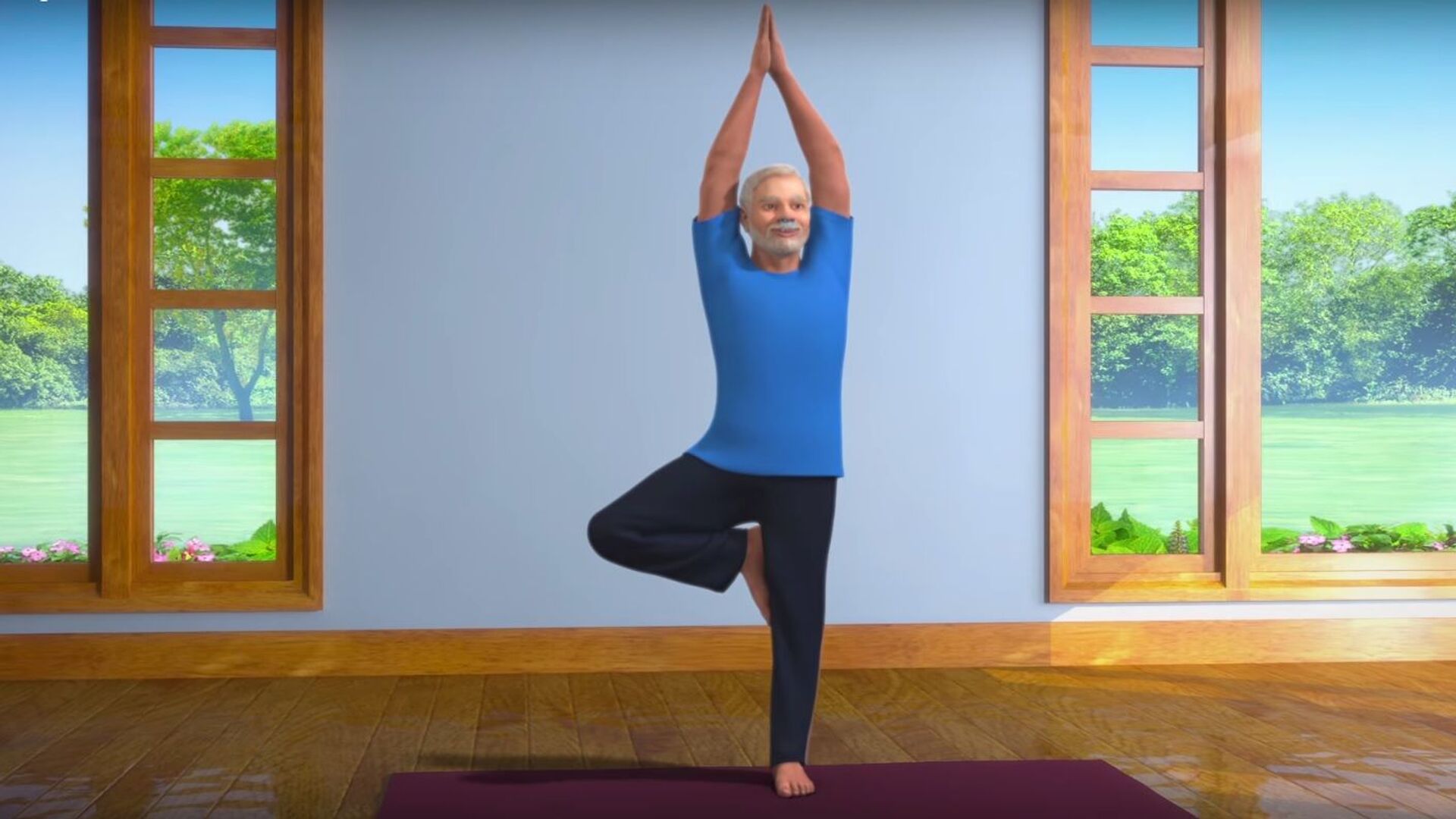https://sputnikglobe.com/20220622/10-second-balance-test-may-predict-how-long-youll-live-new-research-suggests-1096559722.html
10-Second Balance Test May Predict How Long You'll Live, New Research Suggests
10-Second Balance Test May Predict How Long You'll Live, New Research Suggests
Sputnik International
Unlike aerobic fitness, flexibility and muscle strength, the art of body balancing is a great way to determine and measure physical fitness and the risk of... 22.06.2022, Sputnik International
2022-06-22T12:55+0000
2022-06-22T12:55+0000
2022-10-19T18:54+0000
research
research
longevity
health
life
https://cdn1.img.sputnikglobe.com/img/107875/73/1078757329_65:0:1471:791_1920x0_80_0_0_87435850545e669ef3eef23023284f5e.jpg
A recent study by a group of researchers from Brazil has found that people who cannot stand on one foot for ten seconds are nearly twice as likely to die in the next 10 years, according to a report published on Tuesday in the British Journal of Sports Medicine.The study's author, Dr. Claudio Gil Soares de Araújo, director of research and education at the Exercise Medicine Clinic-CLINIMEX in Brazil, opines that poor balance and musculoskeletal fitness can be linked with frailty in older adults.Having researched the connection between movement ability and longevity in the past, Araújo and his colleagues re-examined data from the 1994 CLINIMEX Exercise cohort study, which assessed associations between physical fitness, cardiovascular risk factors, and the risk of developing poor health and dying.During the research, 1,702 participants aged 51 to 75, who could walk steadily in their analysis, underwent several rounds of checkups, right from assessment of their weight, waist size and measures of body fat to standing on one leg for 10 seconds without holding onto anything and more.The researchers found that the risk of death within 10 years was 1.84 times higher among participants who failed the balance test.Moreover, those who failed the test tended to be in poorer health than those who passed, with a higher proportion being obese, having cardiovascular disease and unhealthy blood cholesterol levels.Type 2 diabetes was three times more common among people who failed the test as those who passed.Studies like this provide a scientific basis for deciding on the types of measurements that will help evaluate how well a person is functioning physically, said Dr. John W. Rowe, a professor of health policy and aging at the Columbia University Mailman School of Public Health.
Sputnik International
feedback@sputniknews.com
+74956456601
MIA „Rossiya Segodnya“
2022
Sangeeta Yadav
https://cdn1.img.sputnikglobe.com/img/07e4/08/1b/1080292803_0:121:960:1081_100x100_80_0_0_7490b319dab9611e309056b177265184.jpg
Sangeeta Yadav
https://cdn1.img.sputnikglobe.com/img/07e4/08/1b/1080292803_0:121:960:1081_100x100_80_0_0_7490b319dab9611e309056b177265184.jpg
News
en_EN
Sputnik International
feedback@sputniknews.com
+74956456601
MIA „Rossiya Segodnya“
Sputnik International
feedback@sputniknews.com
+74956456601
MIA „Rossiya Segodnya“
Sangeeta Yadav
https://cdn1.img.sputnikglobe.com/img/07e4/08/1b/1080292803_0:121:960:1081_100x100_80_0_0_7490b319dab9611e309056b177265184.jpg
research, research, longevity, health, life
research, research, longevity, health, life
10-Second Balance Test May Predict How Long You'll Live, New Research Suggests
12:55 GMT 22.06.2022 (Updated: 18:54 GMT 19.10.2022) Unlike aerobic fitness, flexibility and muscle strength, the art of body balancing is a great way to determine and measure physical fitness and the risk of developing poor health. Balancing on one foot even for a few seconds can not just predict one's longevity; it can also be a valuable way to determine someone's risk of falling.
A recent study by a group of researchers from Brazil has found that people who cannot stand on one foot for ten seconds are nearly twice as likely to die in the next 10 years, according to a
report published on Tuesday in the British Journal of Sports Medicine.
The study's author, Dr. Claudio Gil Soares de Araújo, director of research and education at the Exercise Medicine Clinic-CLINIMEX in Brazil, opines that poor balance and musculoskeletal fitness can be linked with frailty in older adults.
“Aged people falling are in very high risk of major fractures and other related complications. "This may play a role in the higher risk of mortality," Araújo said.
Having researched the connection between movement ability and longevity in the past, Araújo and his colleagues re-examined data from the 1994 CLINIMEX Exercise cohort study, which assessed associations between physical fitness, cardiovascular risk factors, and the risk of developing poor health and dying.
During the research, 1,702 participants aged 51 to 75, who could walk steadily in their analysis, underwent several rounds of checkups, right from assessment of their weight, waist size and measures of body fat to standing on one leg for 10 seconds without holding onto anything and more.
The researchers found that the risk of death within 10 years was 1.84 times higher among participants who failed the balance test.
Moreover, those who failed the test tended to be in poorer health than those who passed, with a higher proportion being obese, having cardiovascular disease and unhealthy blood cholesterol levels.
Type 2 diabetes was three times more common among people who failed the test as those who passed.
However, Araújo said, “It is never too late to improve balance by specific training. A couple of minutes a day — at home or in a gym could help a lot.”
Studies like this provide a scientific basis for deciding on the types of measurements that will help evaluate how well a person is functioning physically, said Dr. John W. Rowe, a professor of health policy and aging at the Columbia University Mailman School of Public Health.


